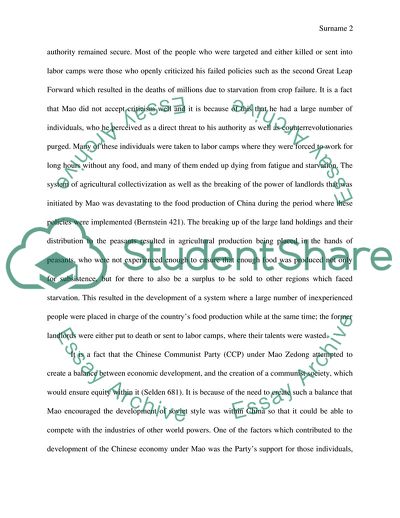Cite this document
(Mao Zedongs Power in Historical Context Essay Example | Topics and Well Written Essays - 2500 words, n.d.)
Mao Zedongs Power in Historical Context Essay Example | Topics and Well Written Essays - 2500 words. https://studentshare.org/history/1826532-1mao-zedongs-power-in-historical-context-2womens-power-in-china
Mao Zedongs Power in Historical Context Essay Example | Topics and Well Written Essays - 2500 words. https://studentshare.org/history/1826532-1mao-zedongs-power-in-historical-context-2womens-power-in-china
(Mao Zedongs Power in Historical Context Essay Example | Topics and Well Written Essays - 2500 Words)
Mao Zedongs Power in Historical Context Essay Example | Topics and Well Written Essays - 2500 Words. https://studentshare.org/history/1826532-1mao-zedongs-power-in-historical-context-2womens-power-in-china.
Mao Zedongs Power in Historical Context Essay Example | Topics and Well Written Essays - 2500 Words. https://studentshare.org/history/1826532-1mao-zedongs-power-in-historical-context-2womens-power-in-china.
“Mao Zedongs Power in Historical Context Essay Example | Topics and Well Written Essays - 2500 Words”. https://studentshare.org/history/1826532-1mao-zedongs-power-in-historical-context-2womens-power-in-china.


